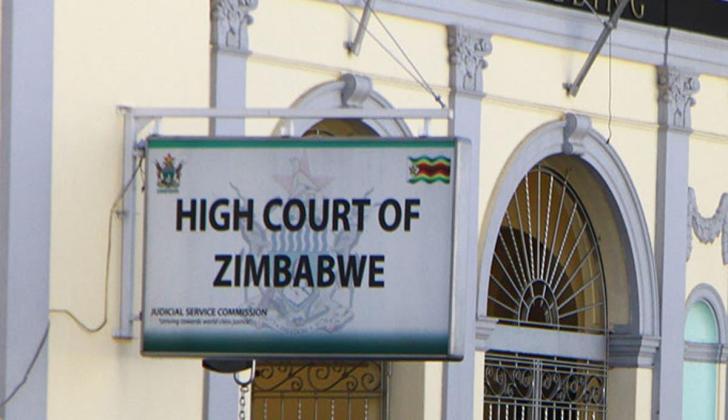News / National
High Court orders return of US$78,000 seized in abandoned theft case
24 Jun 2025 at 08:02hrs |
0 Views

The High Court has overturned a magistrate's decision to withhold US$78,000 seized from two men previously accused of theft, ruling that the funds were unlawfully kept in police custody after the case collapsed.
In a scathing judgment, Justice Joel Mambara ruled that the magistrate had committed a "gross irregularity" by refusing to determine ownership of the money, as required by law, and failing to exercise her powers under the Criminal Procedure and Evidence Act.
The two applicants, Admire Musiza and Tafara Machokoto, were arrested on allegations of stealing the money from a private company. Upon arrest, police confiscated US$56,000 and US$22,000 from the pair, respectively.
Although the trial began and multiple witnesses were called, the State failed to proceed after being unable to locate a key witness. In April 2024, the magistrate granted an application by the accused to be removed from remand, effectively ending the criminal proceedings.
Musiza and Machokoto then applied for the return of their seized money under Section 58 of the Criminal Procedure and Evidence Act, which mandates the return of lawfully seized property when prosecution is discontinued—unless the property is prohibited or its possession is illegal.
However, the magistrate dismissed the application in December 2024, declining to determine who was lawfully entitled to the money and instead allowing it to remain in police custody.
Justice Mambara sharply criticised this decision.
"The magistrate's refusal to engage with the issue of ownership left the matter in limbo, contrary to the law and established precedent. This was a clear failure to discharge her statutory duty," the judge ruled.
He directed that the magistrate should have made a ruling on the ownership of the money and ordered its return in accordance with the law.
The High Court judgment sets a precedent reinforcing the principle that law enforcement agencies cannot indefinitely retain property once criminal proceedings are abandoned, unless the item in question is illegal to possess.
Justice Mambara ordered that the matter be remitted to the magistrates' court for proper determination of ownership in compliance with the law.
In a scathing judgment, Justice Joel Mambara ruled that the magistrate had committed a "gross irregularity" by refusing to determine ownership of the money, as required by law, and failing to exercise her powers under the Criminal Procedure and Evidence Act.
The two applicants, Admire Musiza and Tafara Machokoto, were arrested on allegations of stealing the money from a private company. Upon arrest, police confiscated US$56,000 and US$22,000 from the pair, respectively.
Although the trial began and multiple witnesses were called, the State failed to proceed after being unable to locate a key witness. In April 2024, the magistrate granted an application by the accused to be removed from remand, effectively ending the criminal proceedings.
Musiza and Machokoto then applied for the return of their seized money under Section 58 of the Criminal Procedure and Evidence Act, which mandates the return of lawfully seized property when prosecution is discontinued—unless the property is prohibited or its possession is illegal.
Justice Mambara sharply criticised this decision.
"The magistrate's refusal to engage with the issue of ownership left the matter in limbo, contrary to the law and established precedent. This was a clear failure to discharge her statutory duty," the judge ruled.
He directed that the magistrate should have made a ruling on the ownership of the money and ordered its return in accordance with the law.
The High Court judgment sets a precedent reinforcing the principle that law enforcement agencies cannot indefinitely retain property once criminal proceedings are abandoned, unless the item in question is illegal to possess.
Justice Mambara ordered that the matter be remitted to the magistrates' court for proper determination of ownership in compliance with the law.
Source - The Herald
Join the discussion
Loading comments…






























